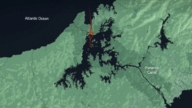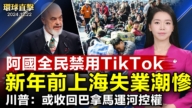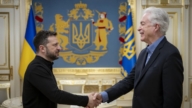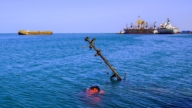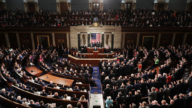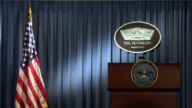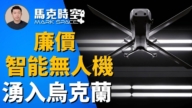【新唐人2014年05月10日讯】瑞士不再是避税天堂了,身为全球最大离岸金融中心的瑞士已经承诺,将自动向其他国家交出外国人账户的详细资料。分析指出,这对各国政府来说,是一个福音,但对中共贪官而言,却是一个晴天霹雳。
6号,在巴黎举行的经合组织年度部长会议上,瑞士和其他46个国家,共同签署了一份有关自动交换信息的全球新标准,就是“信息透明协议”。这份协议要求各国收集并交换银行账户、公司的实益拥有权及其他法律结构等信息。
这像征着瑞士将告别几百年来坚持保护银行客户隐私的做法。据了解,瑞士各银行普遍采用密码账户、化名代号等管理方式,储户只须在第一次存款时写真实姓名,之后便把户头编上代码。这一保密制度赢得了客户的信任,目前,瑞士共管理着2万2000亿美元的离岸资产,规模为全球之最。
北京天则经济研究所副所长冯兴元:“有利有弊,对一些产权制度不好的国家,如果有瑞士这样的保密制度,对于这些想把自己的资金保存的更安全来说,可能是好的。但是,产权制度不好的国家,可能会有大量的贪官污吏,他们也想藏匿财富。这样看的话,透明化还是好的。”
瑞士政府表示,这份协议体现了瑞士打击税务欺诈和逃税行为的决心。“瑞士银行家协会”则表示,瑞士银行业愿意与其他金融中心自动交换信息,但只限于税务理由。
大陆《新京网》报导指出,尽管瑞士将自动交换信息的范畴,限定在“税收”目地,但严查偷漏税行为,还是可以从中发现大量贪腐线索。
冯兴元:“它如果公布取消保密制度,它有个时限,那可能会引起很多资金从瑞士银行露出,露出是一件好事情,它一露出,你就可以跟踪了,打草惊蛇吧,它不露出,到时候也是有问题的,因为瑞士要公布来源,这个信息一出来,对反腐必然是有好处。无论你现在转移资产,你不要转移资产,总会有一个痕迹。”
据了解,从2002年到2011年的10年间,中国大陆因逃税、腐败和犯罪等而产生的非法资金外流,达1万800亿美元,约占全球份额的1/6,是全球非法资金外流最多的国家。
《维基解密》几年前披露,中共高官在瑞士银行大约有5000个账户,其中三分之二是中央级大员。从中共的副总理一级、银行行长、部长到中央委员,几乎人人都有一个账户。此外,在香港工作过的局一级官员,大部分也都有瑞士银行账户。另据美国中文杂志《中国事务》早前透露,前中共党魁江泽民在瑞士,有3亿5000万美元的秘密账户。
也有媒体披露,前国资委主任蒋洁敏利用执掌“中石油”的权力,向中共前政治局常委周永康家族输送利益,令周氏家族通过海外公司赚取上百亿美元,并将巨款洗到瑞士银行。
中国时政评论员杨宁在博文中指出,瑞士银行终结保密制度,给江泽民和周永康家族以及众多高官带来惶恐。
谢田:“瑞士银行的保密体系是全世界公认的,众所周知的,有上百年的历史,这些中共官员一定会选择瑞士来存放他们的钱,所以现在,恐怕中国所有的官员都会惊惶失措的。”
保密制度虽然奠定了瑞士银行“最可信任”的形象,不过,也让瑞士饱受批判。美国“南卡罗莱纳大学艾肯商学院”教授谢田指出,瑞士是被迫终结保密制度的。
谢田:“ 世界各国政府,包括美国政府,都对瑞士银行施加压力,施加压力已经很久了。本来为客户保密是非常好的客户服务的方式,现在已经变成独裁者、暴君和毒枭、毒贩者洗钱的天堂,所以瑞士银行业一直在压力之下。”
报导说,大多数“避税天堂”国家都签署了这一次的协议,而对于少数坚持当“避税天堂”的国家,经合组织可能年内公布“黑名单”,进一步施加压力。
采访/陈汉 编辑/陈洁 后制/黎安安
Switzerland May Share Bank Information to Trace Chinese Black Money
Switzerland is no longer considered as a “tax haven”.
Being the world’s largest offshore financial center,
Switzerland has agreed automatically to share foreigners’
account information with other countries.
Analysts say that this is good news for the other countries,
however, for the Chinese Communist Party’s (CCP) corrupt
officials, it seems a “thunderstorm”.
At a ministerial meeting of the Organisation for Economic
Co-operation and Development (OECD) in Paris on May 6,
with Switzerland joining, 47 countries have signed up to a new
global standard on automatic information exchange.
This is the information transparency treaty.
The agreement requests each member to collect and exchange
bank data, company beneficial ownership,
other legal structures and more.
Switzerland will lift its centuries-old commitment to
protecting the privacy of banking clients.
Sources say that Swiss banks commonly use bank
secrecy management.
Its clients only needed to register their true identities the first time,
then their accounts were assigned a code.
This secrecy system has won the trust of customers.
Currently, Switzerland has about US$2.2 trillion offshore assets,
the largest in the world
Feng Xingyuan, Deputy Director of the Beijing Unirule
Institute of Economics: “It is good and bad.
For some countries if its property system isn’t good,
clients using Swiss banking secrecy to protect their wealth
may be a good deal.
However, if the countries without a good property system,
have many corrupt officials who want to hide their assets,
in this case, transparency is good.”
Swiss government says that this move shows their
determination to fight tax fraud and tax evasion.
Swiss Bankers Association says that “the banks in
Switzerland are willing to adopt the automatic exchange of
information along with other financial centres,
provided that the exchanged information
is only applied for tax purposes.”
Beijing News reported that although Switzerland limits
the exchange data only in the tax area,
it still can find some clue of corruption while
investigating tax evasion.
Feng Xingyuan: “If Switzerland opens its secrecy system,
it may trigger many assets to be exposed.
It is good, once it is exposed, it can be traced.
If it had never been exposed, it is a problem.
Now because Switzerland will open the data, once it is done,
it is certainly good for anti-corruption.
No matter how many assets are being
transferred from China, they are traceable.”
Sources say that from 2002 to 2011, US$1.8 trillion illegal
funds from tax evasion, corruption and crimes were out flowed China,
it accounts for one-sixth of global amounts.
China is the biggest country with illegal fund
outflows in the world.
WikiLeaks revealed several years ago, 5,000 CCP high-ranking
officials have accounts in Swiss banks.
Amongst them, two-third are officials
in the central government.
From CCP’s deputy premier level, presidents of the banks,
to ministry level officials, almost everyone has bank accounts in Switzerland.
In addition, of top level officials working in Hong Kong in the past,
the majority have Swiss bank accounts.
A US-based Chinese magazine China Affairs reported that
former CCP leader Jiang Zemin has US$350 million deposits in a Swiss bank.
Some media exposed that Jiang Jiemin, former director of
State-owned Assets Commission and chairman of
China National Petroleum Co. using his power transferred benefits
to Zhou Yongkang’s family.
The Zhou’s made billions of dollars profit via some overseas
company, then laundered money to Swiss banks.
Yang Ning, current affairs commentator says in his blog that
as Swiss banks lifted their secrecy system,
it brought great panic to Jiang Zemin, the Zhou Yongkang’s
and other high-ranking officials.
Frank Tian Xie, Professor of the University of South Carolina
Aiken: “Switzerland’s banking secrecy system is recognized
by the international community.
As we know, it has centuries-long history.
Thus the CCP officials chose Switzerland to deposit their money.
Now I am afraid that all the CCP officials
will feel panic.”
Although the banking secrecy system gave Swiss banks
the “most trusted” image, it has also been criticized.
Professor Frank Tian Xie says that Switzerland has been
forced to lift the secrecy system.
Frank Tian Xie: “Governments including the US have
pressured Swiss banks for a long time.
To protect clients confidential information
should be considered good service,
However, it becomes a money laundry haven for dictators
and drug dealers.
Thus Swiss banks have always been
under pressure of criticism.”
Sources say that most countries considered as
“tax havens” have signed the treaty this time.
Only a few countries still insisted on “tax haven”status,
and the OECD will likely announce them in a”black list” this year.
Further pressure could be applied.



